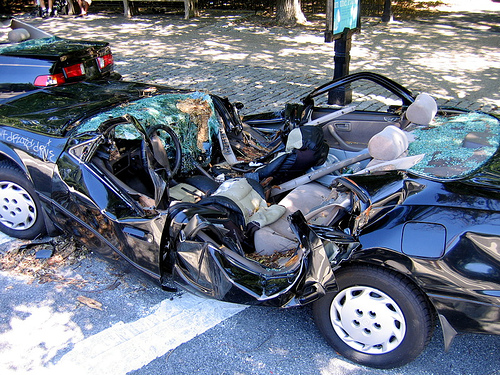Economists have been grappling for years with the question of why people are not afraid of risk when the chance of winning is low but the winning amount is high, such as betting on the lottery, but prefer not to take the risk when it comes to significant losses and therefore insure the house and the car

Are you ready to take on high risks in order to win high returns? Or do you prefer to reduce risks and purchase insurance? Either way, a team of molecular geneticists from the Hebrew University and two economists from universities in Asia claim that the source of our attitude towards risk lies in our genes.
Economists have been grappling for years with the question of why people are not afraid of risk when the chance of winning is low but the winning amount is high, such as betting on the lottery, but prefer not to take the risk when it comes to significant losses and therefore insure the house and the car.
"Many economists have tried to deal with this paradox," says the study's editor Prof. Richard Ebstein from the Department of Psychology at the Hebrew University, "Nobel Prize winner, former Hebrew University member, Prof. Daniel Kahneman and his partner Prof. Amos Tversky offered psychological explanations for this paradox in The theory of value' that he authored, however, the neurobiological and genetic mechanism that underlies the behavior was not clear," notes Ebstein.
In the study, published in the journal PLoS ONE, the researchers used the tools of experimental economics and the tools of molecular genetics under laboratory conditions to examine the role of the "monoamine oxidase" gene (MAOA for short) in predicting the likelihood of buying the lottery or insurance (or both).
The experiment involved 350 people from China who received two tasks representing the tendency to purchase lottery tickets and insurance, using real financial incentives. In the first task, participants were given the option to keep a small amount of cash without risk or to bet a larger amount with a slim chance of winning it back. In the second task, the participants were asked if they would prefer to insure a certain but insignificant loss, or to purchase insurance for a large amount with low risk. At the same time, a blood sample was taken from each participant to characterize the MAOA gene.
The analysis of the results shows that participants with a particularly active variant of the gene clearly tended to prefer a bet with a slight chance of winning and were less likely to purchase insurance, while the participants with a less active variant of the same gene tended to avoid taking large risks.
"This is the first study of its kind that shows a clear link between behavioral tendencies towards risk and a specific gene and it complements other findings published recently on the neurobiological basis of economic risk taking" says Prof. Ebstein and adds that "while the world is recovering from the economic crisis it is worth considering that our innate tendencies can be A significant factor in encouraging people to take risks, which may affect the financial markets."

9 תגובות
Lawrence,
You can say this about research offering some explanation for behavior. Suppose the study were to say that people who grew up in the city are more prone to risks than those who grew up in the countryside. Even then people had an excuse+an impulse. Would you object to this study as well?
Not at all
Once he has an excuse+an impulse nothing will stop him from behaving stupidly
Of course this is only some of the cases but still
Today we know that not only is it not all in the genes but that there is a huge layer of epigenetic information that will take science something like another 30 years to map that can affect behavior just as much as DNA if not more.
to Lawrence
The meaning of the research can also be interpreted differently than you did.
For example, if a person knows that he is prone to dangerous, "risky" behavior due to genetic=psycho-biological reasons, he can, due to his awareness of the excessive risk, be extra careful. Precisely the research information, allows the individual to take more responsibility for his decisions and actions. ……is not it ?
Larami Yoshavyov.
You probably meant your immediate family and not the rotten ones.
The rotten one is a different family.
no no = he doesn't have
Oh really?
The psychological research was not clear and the biological one was?
What is this gibberish, it's because it deals with biology so it's easier to understand that way.
It's sad to see your problems of opinion sometimes, everyone thinks that the profession that doesn't explain everything
[Does something have a mathematical explanation?]
Now who said that the sequence of events in the lives of these people built their personality [and their actions]
did not cause such and such a gene to act in such a way
This is much more likely than "born this way"
Good for you, you make a lot of effort [and rightly so] to take the responsibility from God by saying that there isn't one.
[And that's good because even if there is, there is no responsibility for what is happening here now]
And instead of giving people the responsibility you tell them: it's okay human being, "you were born this way"
The results of the study should have been: there is also a biological factor
and not "it's all about genes"
It seems to me that the time is evident from the message you wrote...
I didn't exactly understand what the context of the mentioned gene is, it's more a comparison of behavioral sciences.
And on a personal note, my (rotten and extended) family is ultra-conservative, and I, on the other hand, love risk. In my opinion, it's a matter of age, so as a person gets older, his tendency to take risks decreases and he seeks more security.